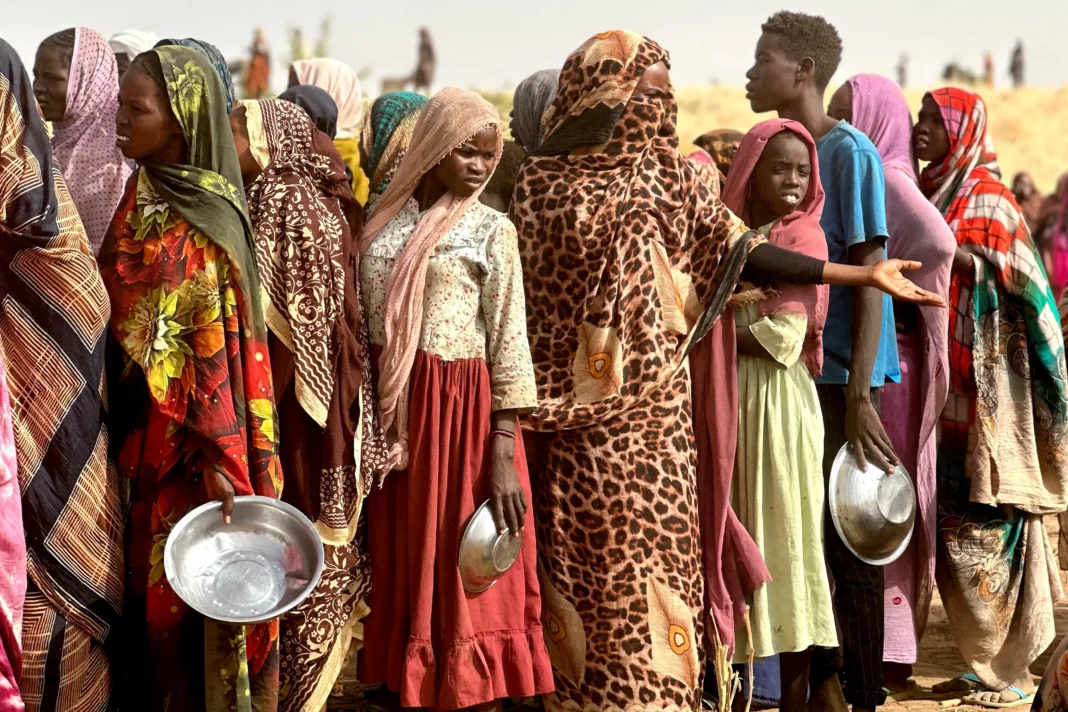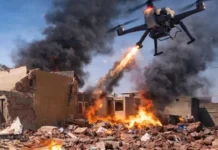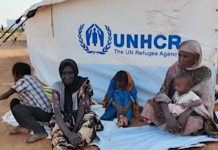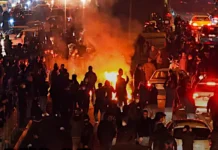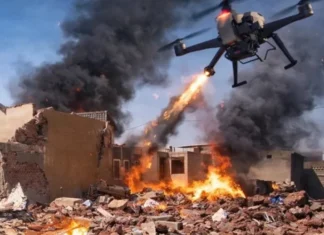United Nations Security Council members should urgently act to protect civilians in western parts of Sudan from unlawful attacks and starvation. The Security Council should pressure the Rapid Support Forces (RSF) to end their unlawful attacks against civilians. Council members should expand the arms embargo and impose targeted actions against warring parties’ leadership, while setting a clear time frame for action.
NEW YORK SEPTEMBER 3: United Nations Security Council members should urgently act to protect civilians in western parts of Sudan from unlawful attacks and starvation, Human Rights Watch said.
The Security Council should pressure the Rapid Support Forces (RSF) to end their unlawful attacks against civilians, including on displaced persons camps, in parts of western Sudan and both warring parties to stop blocking humanitarian aid.
The Security Council should renew and expand the arms embargo on Darfur to cover the entire country and impose sanctions against the warring parties’ leadership, especially the RSF, for serious violations of international humanitarian law.
“The Security Council needs to confront the Rapid Support Forces over their ongoing siege and deliberate and indiscriminate attacks on civilians, and press both warring parties over blocking access to aid,” said Laetitia Bader, deputy Africa director at Human Rights Watch.
“Council members should expand the arms embargo and impose targeted actions against warring parties’ leadership, while setting a clear time frame for action.”
On August 11, 2025, the RSF again attacked a camp for displaced people in the North Darfur state capital, El Fasher, which its forces have besieged for over a year. The Office of the United Nations High Commissioner for Human Rights said the RSF killed at least 57 civilians on that day and at least 32 more in attacks between August 16 and 20. Most of the civilians killed on August 11 were in the Abu Shouk displacement camp, one of the last remaining civilian enclaves.
In early August, the World Food Programme warned that it had not been able to enter El Fasher for over a year and that its cash transfers could not meet people’s needs given the massive price increases because of the siege. Civilians in the city told Human Rights Watch in mid-August that they had resorted to eating animal fodder. Several soup kitchens – a lifeline for many – have been forced to close over the last month.
The RSF has been imposing a siege on El Fasher since April 2024, preventing both suppliers and humanitarian aid groups from accessing the city. While international humanitarian law does not prohibit sieges of opposition forces, a siege cannot include deliberate attacks on civilians or starvation of the civilian population, both of which are war crimes.
The RSF has failed to respect the fundamental requirement under international humanitarian law to distinguish between civilians and fighters and between civilian and military objects, which applies at all times.
The Sudanese Armed Forces and its allied joint forces present in different parts of El Fasher, including in and around Abu Shouk, also have an obligation to take all feasible measures to protect civilians, including by not locating military targets near or within densely populated areas.
In mid-April, the RSF carried out a large-scale attack on the Zamzam displacement camp, south of El Fasher. The forces indiscriminately killed and executed civilians, including health care workers, burned civilian buildings, detained civilians, and carried out widespread pillage, forcing hundreds of thousands of civilians to flee.
In July, Médecins Sans Frontières (Doctors without Borders or MSF) reported that civilians in El Fasher and in Zamzam had faced “systematic patterns of violence that includes looting, mass killings, sexual violence, abductions, starvation and attacks against markets, health facilities, and other civilian infrastructure” since April 2024.
A 45-year-old woman who fled with her 11 children in May said that two of her daughters, ages 13 and 15, were among 30 women and girls the militia fighters took away at a checkpoint in RSF-controlled territory. “When they brought my daughters back, one was bleeding,” she said. “They were raped not far from us. We saw it. They shot at my neighbor, so I couldn’t get up [to intervene].”
The UN Security Council should assess to what extent the UN has bolstered civilian protection since an October 2024 report by UN Secretary-General António Guterres. This assessment should include a public briefing to the council by the UN and African Union fact-finding missions and special envoys on preventing genocide regarding the ongoing violations against civilians ahead of the UN General Assembly’s annual gathering of heads of state in New York.
“For over a year, civilians in North Darfur have faced starvation and deliberate attacks while at the same time violence is surging in the Kordofan region,” Bader said. “As the warring parties repeatedly flout international law, UN Security Council members should commit to concrete, time-bound measures, including targeted sanctions and concerted action against those violating the Darfur arms embargo.”
Image: © 2025 AFP via Getty Images
